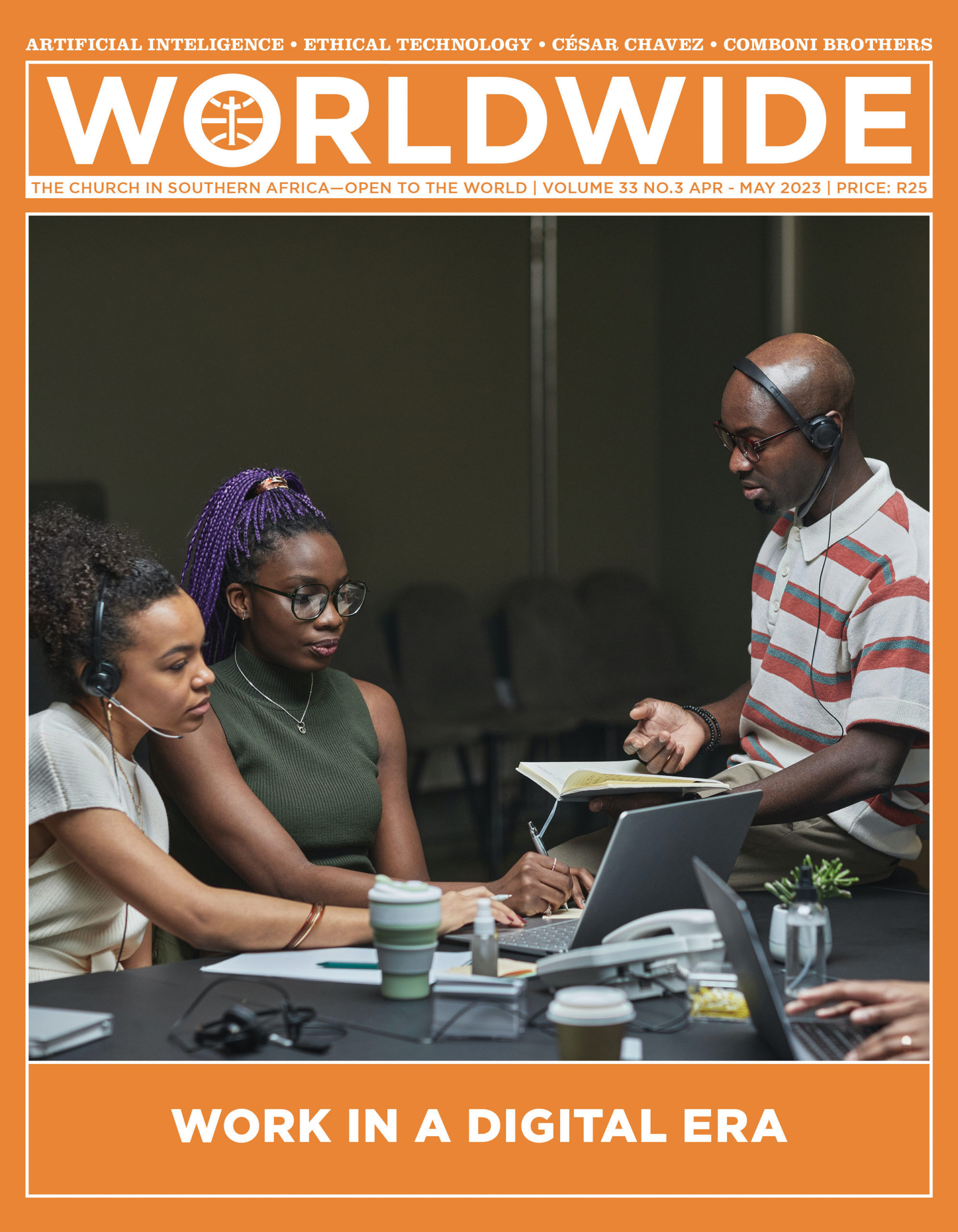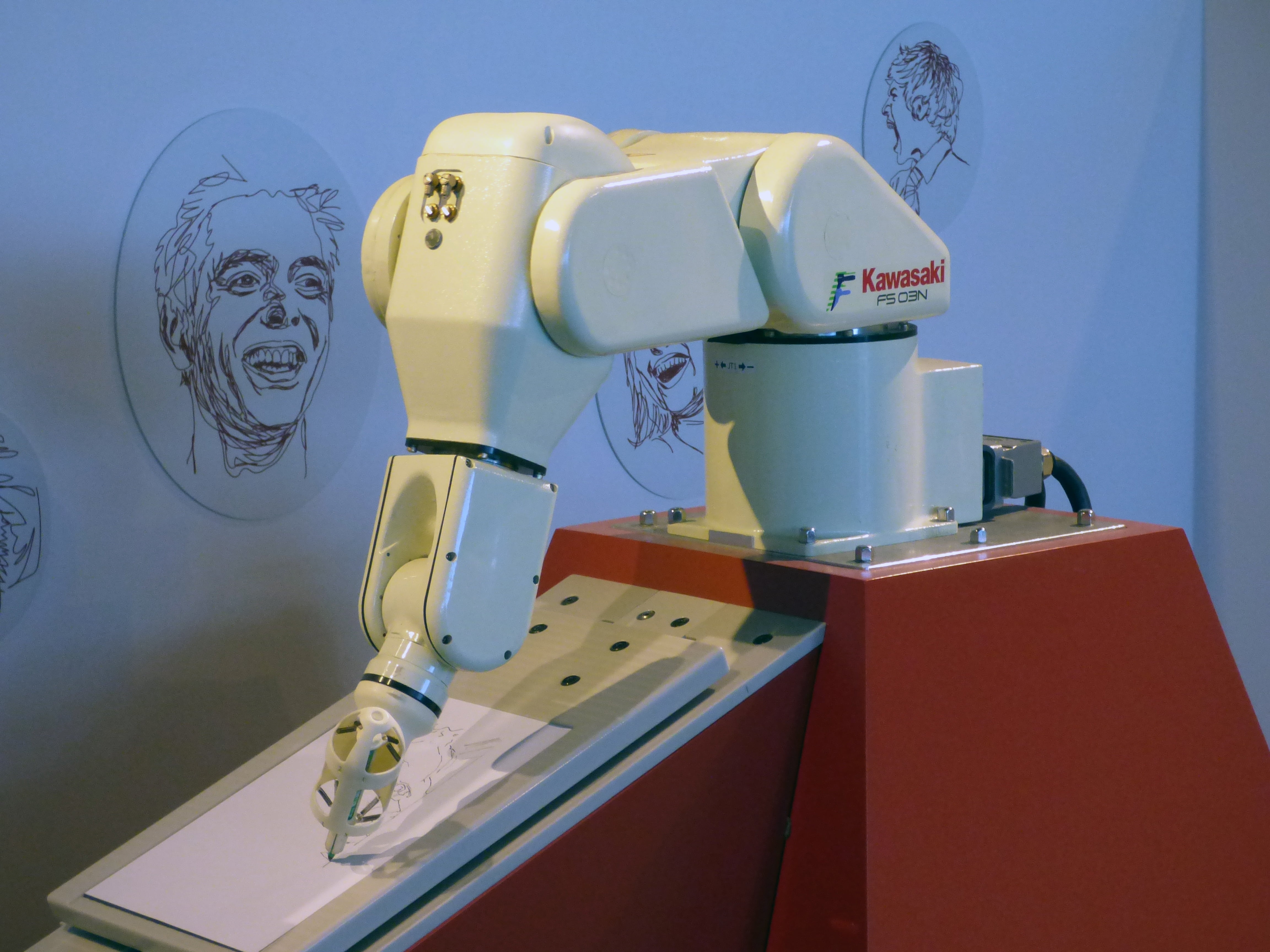
WORK IN A DIGITAL ERA
In the image we see a group of work colleagues discussing and planning their activities. They seem to have fun and an amicable relationship. The future of work passes through team work and co-operation in a spirit of mutual collaboration.
RADAR • A SOUTH AFRICAN PERSPECTIVE

WORK IN THE 21ST: CENTURY CHALLENGES IN A NEW INFORMATION SOCIETY
Our world of work is undergoing a revolution. Artificial Intelligence, robotisation and automation are replacing the human workforce. To combact this, it is necessary to focus on education and training of those skills that better the chances of employability
BY
CHRISTOFFEL J. GELDENHUYS
| LABOUR SPECIALIST, CJ ATTORNEYS
SUSAN SELZER | B. PROC. LABOUR LAW UNISA, PRETORIA
WHAT KIND of employment will there be tomorrow, especially considering that the rules which have been developed to monitor the employment relations of yesterday and today are turning out to be totally inappropriate for the present and the future world of work. For example, the rise in the use of Artificial Intelligence (AI), such as its chatbot (conversational robot) in the ChatGPT programme, to generate content which would have previously been produced through human labour.
Tremendous changes are taking place in the labour market and increasing numbers of people join the ranks of the unemployed. Some jobs are being eliminated and new ones have been created. One can even go as far as to predict the end of the world of work as we know it. For most citizens, work represents a viable path to a meaningful way of life by affording them access to the market of goods and services, providing the possibility to make a positive contribution to their own family and society at large and offering enriched human connections. Therefore, unemployment comes to represent marginalisation and exclusion. Indeed, work is a question of human dignity. It stands to reason that every path must be explored to enable more citizens to have the benefit of decent employment.

There are several factors that influence the world of work. The globalisation of the market economy is but one. International competition remains, amongst other things, the basic product/service at the best (often the cheapest) price. Ironically in a money-driven world, restructuring with massive job losses often pushes up the price of shares, as productivity and profits are expected to be greater.
The demographic explosion refers to two phenomena. Firstly, every hour, 12 500 new babies are born in the world, which adds a billion more inhabitants to our planet every decade. Secondly, many of us will live longer. People in the 21st century, certainly in the advanced economies, will live on average, close to a hundred years, or even longer. This outwardly ‘happy’ development has negative implications for our social security budgets, especially in the area of pensions/guaranteed income and the medical sector, but also positive implications for the world of work. Care of elderly people will prove to be a rapidly expanding provider of employment.
New work dynamics
Networking is the keyword. The work of today and tomorrow will thus perform in one or more networks, on one’s own, but mostly as part of a team, in the framework of shorter or longer projects, for which it will be contracted. Collective arrangements will be mere frameworks, or simply fade away, as a result of this new employment dynamic.

There will be an ongoing dramatic job shift, which is only just beginning. Job losses caused by other factors such as robotisation and automation will result in repetitive work being shed on a massive scale. We will increasingly depend on routine production and services, in-person services and creative inputs. It is thus obvious that routine or repetitive jobs are on the decline. The worker who performs routine production or service activities faces the threat of automation on the one hand and from cut-throat competition with low-wage countries on the other, with production being provided at much lower wages and in far less favourable working conditions, in India and China, for example.
The focus of education and training should be on
such skills that better the chances of employability
of the youth entering the job market
A continuous decline in routine jobs can therefore be predicted, with middle and routine management jobs also being threatened. However, in-person services are faring better. Hereto, automation plays a significant role. The replacement of human labour with machinery contributes to the growing competition between workers who have lost their routine jobs and immigrant workers alike. This is forcing their wages downwards, while creative workers are the only ones who are flourishing. They can offer their creative services on the world market and are the only people who are really contributing a high added value and being well rewarded for it.

The use of AI in the workforce is also rendering human skills and intelligence redundant in many sectors. Therefore, the demand for skills and knowledge is shifting towards those that AI does not possess to a satisfactory degree. To combat this, the focus of education and training should be on such skills that better the chances of employability of the youth entering the job market, especially in South Africa, where the youth unemployment rate is at an all-time high.
Financial services are another growing business and a weapon of speculation in the quest to maximise profits in the shortest term. For instance, the rise of cryptocurrency provides opportunities for entrepreneurship and employment which were not previously available and can be seen as unchartered territory that is worthy of exploration in this age of information.
One aspect that will remain present in the future working environment is the need for resolving labour
conflicts and disputes
Evidently, our world of work is undergoing a revolution. We have been
catapulted into a new information society, where the realities and the truths of yesterday are becoming increasingly irrelevant. Globalisation and new technologies are causing enterprises to explode into networks of teams where work will be done on a project basis. The employment relationship, the role of social partners and the like will be fundamentally changed, in terms of how both employers and employees approach the workplace; shifting from a traditionally ‘stable’ 9-to-5 activity to a more dynamic, interactive and fastchanging environment. There is a need for a mental revolution, especially in the area of vocational training, to grasp these challenges that lie before us and to determine what must be done to respond creatively and appropriately to the call of new opportunities which the information society offers. With this mentality, there is no shortage of work.

As a consequence, an economic environment with increased pressures
of unemployment, exacerbated by the demographic explosion, may leave no room for social policies that might burden public expenditure, which would mean cutting public jobs and reducing Social Security benefits, including pension and sickness benefits. The short-term nature of project-based employment would also make the provision of and access to such benefits more inexpedient.
Conflict resolution
Regardless of their roles or job titles, as long as humans remain present in the workforce, their foibles and fallacies will inevitably continue to affect the workplace. As such, one aspect that will remain present in the future working environment is the need for resolving labour conflicts and disputes. In South Africa, this role is played by the Commission for Conciliation, Mediation and Arbitration (CCMA). This is an independent body that serves the function of a dispute resolution body and which has no affiliation to labour or business. It has mandatory and discretionary functions. One of its main purposes is to conciliate workplace disputes between employees and employers. In the workplace, where change is constantly taking place and for instance, jobs are being lost due to operational reasons, the Labour Relations Act of 66 of 1995 (as amended), sets out the procedural and substantive aspects which must be adhered to when job losses are imminent.

The purpose of the Labour Relations Act is to advance economic development, social justice, labour peace and the democratisation of the workplace by fulfilling the primary objectives of the aforementioned Act. The CCMA delivers cost-effective dispute resolution, which includes training and education.
In the ever-changing landscape of the workplace with technology—at times, replacing the human workforce—it is imperative that workers are aware that there is this body whose purpose is promoting stability in the workplace. Whatever the work of tomorrow shall be, the rules which monitor employment relations will have to be mutable and amended accordingly.
In a world where work is changing in unprecedented ways as a result of technological advancement, some jobs will be lost, others will be created, and new opportunities must be made use of to combat unemployment. Conflict resolution will need to adapt to these changes, but will still play a crucial role in the workplace of the future.


